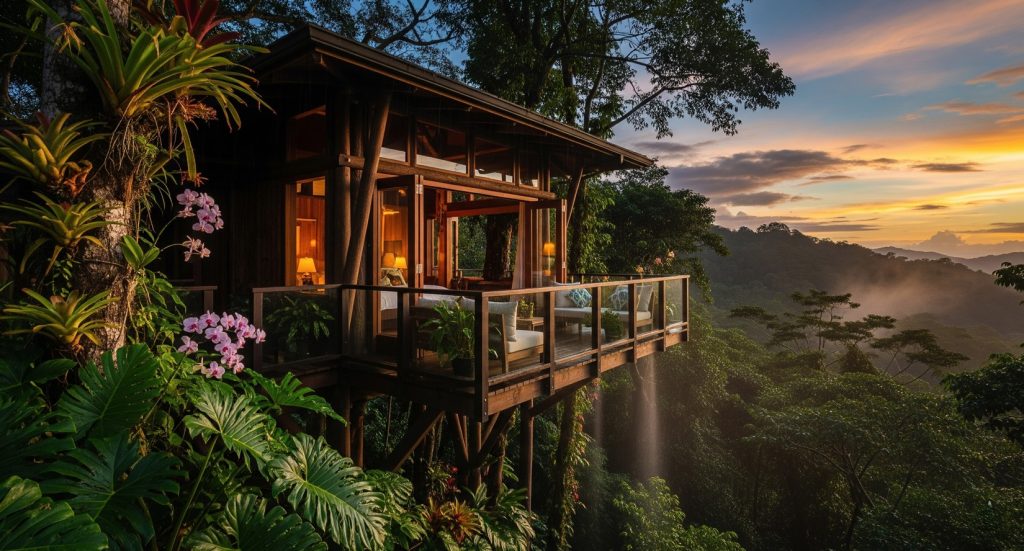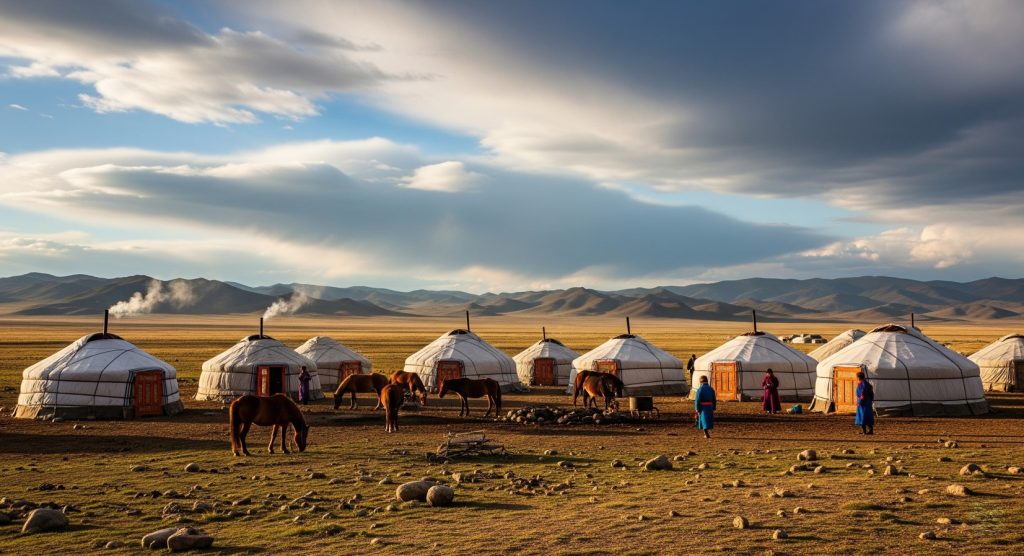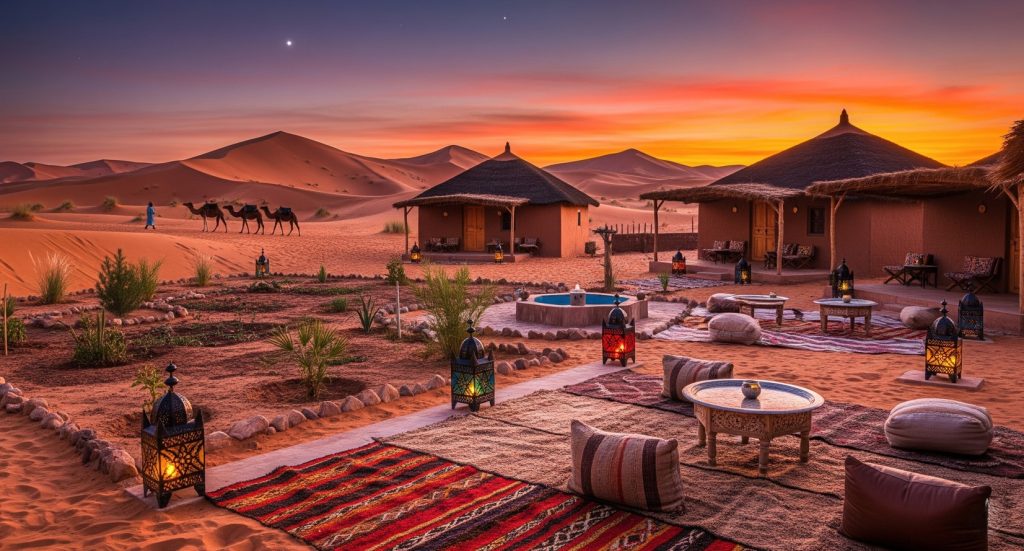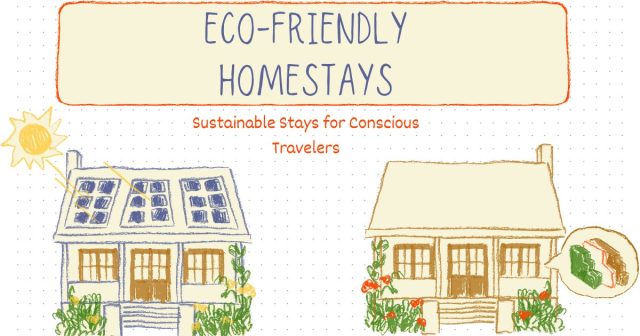Sustainable travel has emerged as a key priority for conscious explorers seeking to minimize their environmental footprint while forging genuine connections with local communities. Eco-friendly homestays are at the forefront of this movement, offering immersive experiences that celebrate regional traditions, champion conservation, and support livelihoods. Instead of staying in a standardized hotel, these unique accommodations invite you into the very heart of a destination’s heritage—from off-grid cabins and seaside cottages to family-run farmhouses. Each stay is an opportunity to learn, share, and contribute positively to the places you visit. Below, we’ve curated 10 remarkable homestays across six continents. Each one demonstrates a strong commitment to green practices—solar energy, rainwater harvesting, organic gardens, zero-waste kitchens—while delivering unforgettable cultural exchanges. Read on to find your next sustainable sanctuary.
1. Rainforest Treehouse Retreat, Costa Rica
Tucked into the emerald canopy of the Osa Peninsula, this intimate treehouse blends seamlessly with the rainforest. Built from reclaimed hardwood and powered by rooftop solar panels, the off-grid retreat invites guests to wake to toucan calls and howler monkeys. Participate in guided wildlife tours led by local biologists, join cacao farming workshops to harvest and handcraft raw chocolate, or explore networked trails that wind through primary forest. Organic farm-to-table meals are grown on-site, while rainwater harvesting and composting toilets ensure minimal waste. At night, a stargazing session beneath an unpolluted sky reveals the Milky Way in all its glory. By booking here, travelers directly support regional conservation and community-led reforestation efforts, making every stay a gift back to the land.

2. Alpine Farmstay, Switzerland
High in the Swiss Alps, a family-run dairy farm welcomes guests into a rustic chalet overlooking snow-capped peaks and lush meadows. The homestay is heated by a wood-biomass boiler and powered partly by micro-hydro from a mountain stream. Each morning, you’ll help milk goats or cows by hand and taste cheeses crafted on-site using centuries-old recipes. Hikes on grazing pastures introduce you to alpine flora, while evenings bring fondue dinners beside a crackling fire. The hosts teach traditional yodeling and shepherd dog demonstrations, preserving cultural heritage. With sustainable forestry practices maintaining the surrounding pine forest and solar panels offsetting electricity needs, this alpine escape proves that luxury and low-impact living can coexist at altitude.
3. Rice Terrace Homestay, Bali, Indonesia
Perched along the iconic Tegallalang rice terraces, this bamboo homestay captures Bali’s agrarian soul. Constructed from locally sourced bamboo and volcanic stone, the property uses green roofs, passive cooling designs, and off-grid solar lighting. Mornings begin with guided treks through rice paddies alongside farmers teaching subak irrigation techniques older than five centuries. You’ll learn to plant seedlings, harvest grains, and prepare authentic balinese meals using organic ingredients from onsite gardens. After a midday yoga session overlooking emerald steps, join a traditional gamelan music workshop with village elders. The stay is community-owned, ensuring that every visitor supports local education and temple restoration. As dusk falls, lantern-lit pathways guide you back to your eco-cottage for a night of gentle breeze and rural serenity.
4. Nomad Yurt Camp, Mongolia
Experience the vast Gobi Desert from a traditional Mongolian ger (yurt) outfitted with modern eco-amenities. Each canvas dwelling stands on a raised wooden platform and features solar-generated lighting, wood-burning stoves using sustainably harvested deadwood, and eco-friendly waste management. Accompanied by nomadic hosts, you’ll traverse dunes on camelback, learn throat singing around a campfire, and help with livestock herding. Every homestay negotiates seasonal pasture use with local families to ensure sustainable grazing. Return to honest hospitality: clear tea, handmade cereal bowls, and genuine storytelling under a canopy of stars. This cultural immersion helps preserve nomadic traditions while introducing regenerative land-use practices to protect fragile desert ecosystems.

5. Organic Vineyard Farmhouse, Tuscany, Italy
Set among rolling hills of Chianti, a centuries-old farmhouse offers an authentic taste of Italian countryside living. The estate practices biodynamic viticulture, composting grape pomace for soil health and avoiding synthetic chemicals. Guests stay in restored stone cottages, cooled with passive ventilation and heated by a wood-burning stove from fallen olive branches. Participate in grape harvests, learn hands-on wine pressing, and attend farm-to-table cooking classes under an oak-beamed pergola. Organic olive oil and honey are produced on-site, and guest meals feature fresh produce from the kitchen garden. Guided bicycle tours along cypress-lined lanes reveal hidden chapels and antique water mills. This homestay is a testament to how agro-ecology and cultural preservation can flourish side by side.
6. Berber Desert Eco-Lodge, Morocco
On the edge of the Sahara near Merzouga, eco-conscious Berber tents are nestled among ochre dunes. Constructed with local clay and goat-hair textiles, the tents maintain cool temperatures by day and warmth by night. Solar ovens prepare traditional tagines, while a communal dining circle around a charcoal fire offers live Gnawa music sessions. Embrace sustainable practices such as greywater gardens and compost latrines. Join your hosts for a sunrise camel trek, learning about desert medicinal plants and night-time constellations at a dedicated observatory dome. By employing indigenous building techniques and solar infrastructure, the lodge preserves desert ecology and Berber heritage for future generations to experience.

7. Mangrove Eco-House, Palawan, Philippines
Floating above a protected mangrove estuary in Palawan, this stilted eco-house merges coastal charm with conservation. Built on reclaimed wood and fitted with tide-powered mini turbines, it supplies its own electricity. Guests aid in mangrove replanting, kayaking educational tours through narrow waterways teeming with juvenile fish, and attending workshops on sustainable aquaculture. Fresh seafood and tropical fruits come directly from responsible local fishers and farmers. The open-air living space and rainwater collection system reduce resource strain, while community revenue supports anti-logging patrols. At night, soft LED lighting reveals bioluminescent plankton along the water’s edge, turning your stay into a living lesson in shoreline stewardship.
8. Adobe Highland Cottage, Peru
In Peru’s Sacred Valley, an adobe cottage overlooks terraced fields used for ancestral potato varieties. Powered by solar water heaters and insulated with natural reeds, the cozy home invites you to help harvest tubers alongside Quechua families. Learn traditional weaving on backstrap looms, participate in a textile dyeing workshop using native plants, and savor quinoa-based stews. Hosted rituals honor Pachamama (Mother Earth) through small offerings, showcasing Andean spirituality. By supporting this woman-led homestay cooperative, visitors contribute to cultural preservation and agro-biodiversity projects that safeguard heirloom crops threatened by modern monocultures.
9. Coastal Fishing Village Homestay, Crete, Greece
Along Crete’s northern shore, stone cottages in a secluded fishing hamlet welcome travelers to an unplugged island life. Hosts are descendants of seafarers who practice age-old sustainable netting and line-fishing techniques. Stay in rooms cooled by sea breezes, share olive-pressing demonstrations, and help prepare meze platters from catch-of-the-day. Solar water heaters and small-wind turbines supply energy, while greywater irrigates citrus groves. Evening gatherings feature bouzouki music and tales of ancient Minoan seafaring. This homestay supports fish-stock monitoring initiatives and preserves maritime traditions imperiled by overfishing and mass tourism.
10. Boreal Forest Cabin, Finnish Lapland
Deep within Lapland’s boreal forest, a handcrafted log cabin offers an intimate escape under the Northern Lights. Built from responsibly sourced pine, it uses a certified wood-fired sauna stove, passive solar heating, and composting toilets. Guests forage for berries and mushrooms with a Sami guide, learning about indigenous reindeer herding cultures. In winter, snowshoe tours reveal Arctic wildlife tracks, while summer brings endless daylight for canoeing on glacial lakes. The homestay contributes to sustainable forestry programs and Sami cultural education, ensuring that each visitor leaves with both memories and meaningful support for this fragile ecosystem.
How to Choose the Perfect Eco-Friendly Homestay
When selecting a green homestay, look for clear evidence of sustainable infrastructure—solar or micro-hydro power, rainwater harvesting, composting systems, and locally sourced building materials. Research host certifications such as Green Key, EarthCheck, or community-based eco-tourism cooperatives. Read recent guest reviews for insights on cultural authenticity and environmental stewardship. Evaluate how your stay benefits the community: does a portion of revenue support education, conservation, or local health initiatives? Consider the scale of the property; smaller, family-run operations often deliver more genuine cultural exchanges. Don’t overlook opportunities to participate in daily routines—farming, cooking, crafting—that deepen your understanding and leave a positive footprint. Finally, communicate any dietary preferences or mobility needs in advance to ensure your host can accommodate you sustainably.
Conclusion
These 10 eco-friendly homestays demonstrate that meaningful travel doesn’t have to come at the planet’s expense. By choosing accommodations that prioritize renewable energy, ethical land use, waste reduction, and cultural preservation, you transform a simple vacation into a collaborative mission. Each stay fosters personal growth, intercultural dialogue, and tangible benefits for host communities and ecosystems. As sustainable travel becomes ever more accessible, let these homestays inspire your next journey—one where you return home with not only lasting memories but also the knowledge that your travels helped restore and celebrate our shared world.











